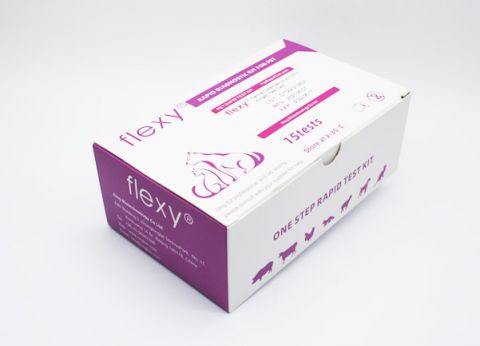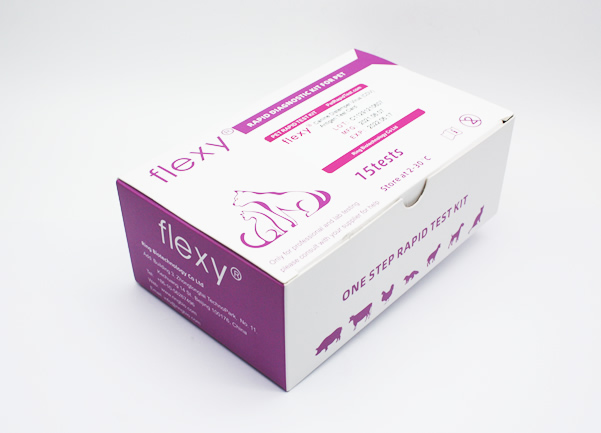
Tritrichomonas foetus Real-time PCR Test Kit can be used to detect Tritrichomonas foetus nucleic acid in canine and feline anal swab sample, which is rapid, accurate and easy-to-operate. Sensitivity 100%, Specificity 100%.
Basic information
Tritrichomonas foetus is a species of single-celled flagellated parasites that is known to be a pathogen of the bovine reproductive tract as well as the intestinal tract of cats. In cattle, the organism is transmitted to the female vagina and uterus from the foreskin of the bull where the parasite is known to reside. It causes infertility, and, at times, has caused spontaneous abortions in the first trimester.
This kit uses fluorescence probe PCR (RT-PCR) method to detect the deserved gene of Tritrichomonas foetus, which is helpful for diagnosis, monitoring and epidemiological investigation of Tritrichomonas foetus.
Key facts of the Tritrichomonas foetus Real-time PCR Test Kit
- Ready to use kits for the vet clinic
- No extraction required
- Result in 30min.
Tritrichomonas foetus Real-time PCR Test Kit Components
| Item # | Item | Qty |
|---|---|---|
| 1 | PCR reaction solution | 120ul |
| 2 | Negative Control | 50ul |
| 3 | Positive Control | 50ul |
| 4 | Exogenous Gene Control | 50ul |
| 5 | Sample buffer | 1ml |
| 6 | Enzyme mix | 10ul |
| 7 | Kit user manual | 1set |
What are Tritrichomonas foetus?
Tritrichomonas foetus typically accumulates as protozoa in the small intestine of cats. The organism that causes the disease will reproduce by shedding, creating an ever growing population of parasites that will continue to endanger your cat’s health without appropriate treatment.
Tritrichomonas foetus in cats is a highly contagious disease that tends to affect cats that live in catteries, shelters or other areas with multiple animals. Given Tritrichomonas foetus’ ease of travel between affected felines, it can spread rapidly in contained environments. If one cat in a household is diagnosed with Tritrichomonas Foetus in, chances are all of the household cats, or cats that share the same litter box, are affected. This is true regardless of whether the other cats are showing symptoms yet.
Extended reading
-
Tritrichomonas foetus infection in cats, International cat care




